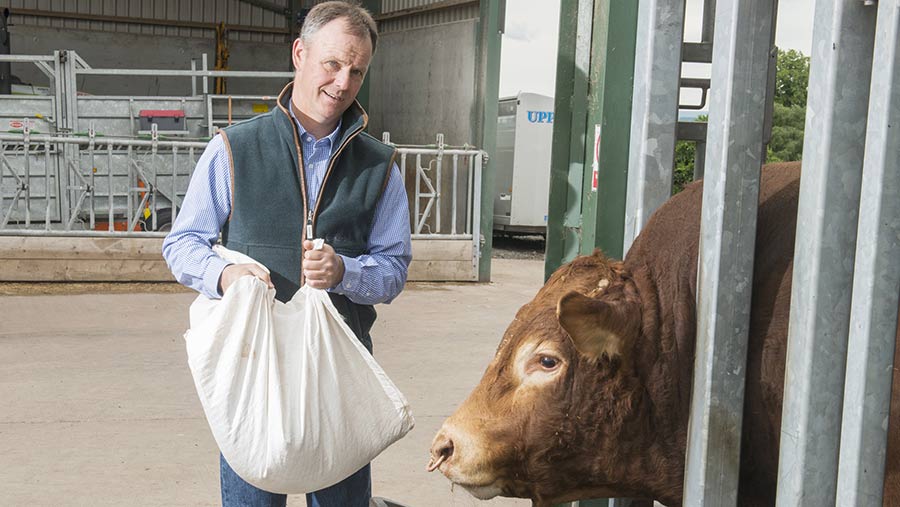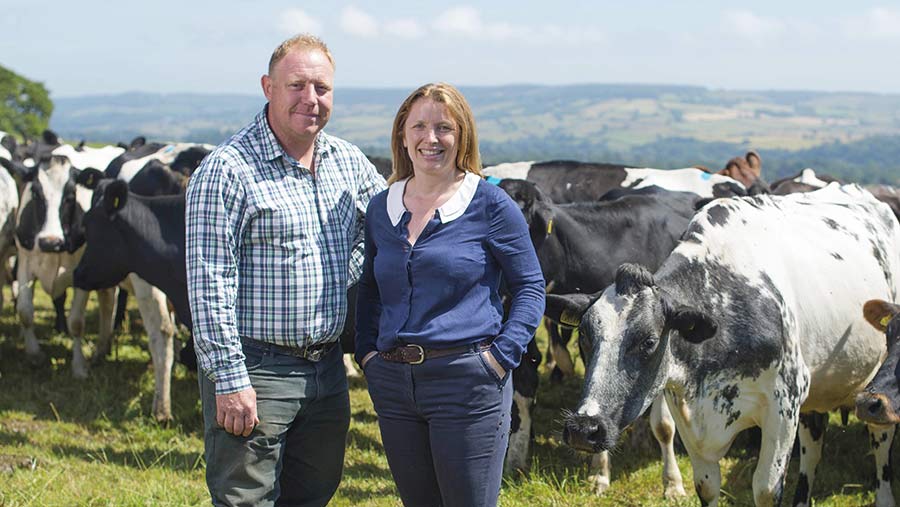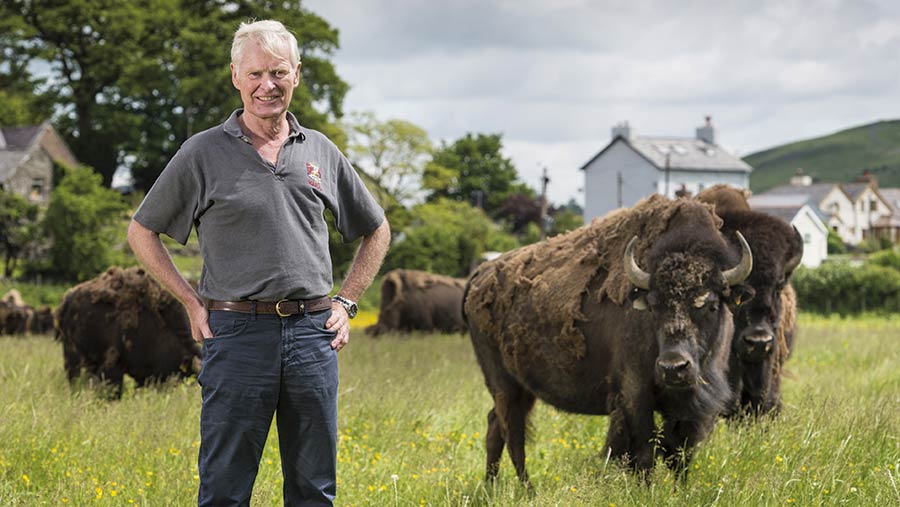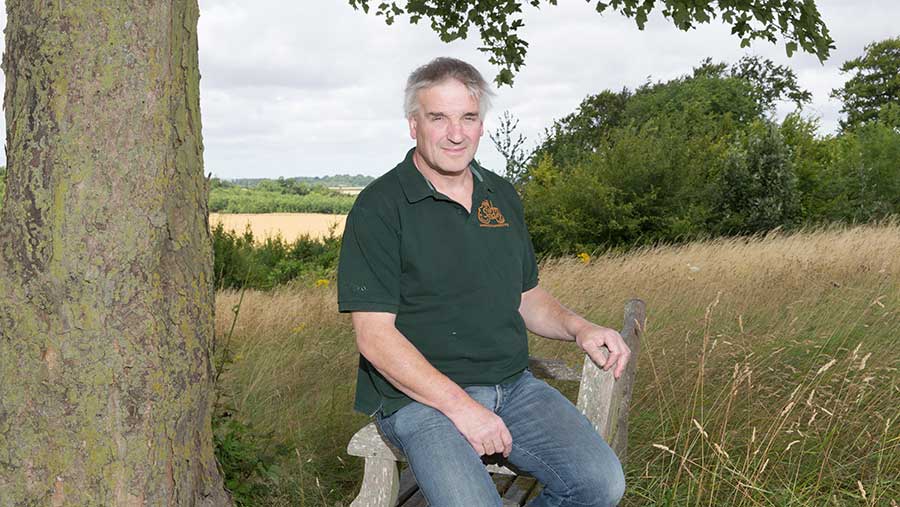Farm business tips from Farmers Weekly Award winners
Building a successful farm business doesn’t happen overnight – it takes great ideas, passion, determination and years of hard work to see it through.
It is a critical time for the farming industry, which faces many new challenges and opportunities over the coming months with the looming fallout from Brexit.
With the phased withdrawal of direct support, farmers will have to increase innovation and restructure their businesses to be profitable.
See also: Meet the 2018 Farmers Weekly Awards finalists
Ahead of the 2018 Farmers Weekly Awards, we have returned to previous winners of the overall accolade and asked them to share the secrets of their success.
Each farmer was asked four questions on the keys to running a successful farm business (see below). The results have revealed some common traits, but also some surprises.
The questions
- What are your top three business tips for a successful farm business?
- What’s the best business decision you have ever made?
- What will you never do again in business?
- What would be your key piece of advice to a new entrant?
Robert Neill, Upper Nisbet Farm, Jedburgh, Roxburghshire

© Angus Findlay
1. Manage your business through data recording – if you don’t monitor it, you cannot measure it. Set yourself targets and benchmark yourself against yourself year on year. Don’t be frightened to take risks and borrow money.
2. The best decision for my beast enterprise was buying a set of weigh bars. Only 20% of beef farmers in Scotland have got weigh bars. But I can now weigh cattle, monitor the data and look at what it means.
3. Always run your business with your head, not your heart. A prime example in a cattle or beef enterprise would be: go to the end of the supply chain and work backwards. Look what customers you’re going to supply, what they want, condition, grade of stock. Then decide who you’re going to supply and go from there.
4. Seek advice from peers and industry experts and look for a mentor who is well respected in your field, especially if you are a first generation farmer.
Poul Hovesen, Salle Farms Company, Holkham Estate, Norfolk
1. Understand your farm potential, climate, crops and markets. Follow a long-term strategy. Develop a technically capable and skilled workforce that understands your objectives.
2. Developing and following a long-term strategy using the best science and technology available.
3. Short term actions, follower of fashion.
4. Ask yourself if you are capable of being in the top 5%? Build business resilience, giving thought to long-term planning and attention to detail.
Peter and Di Wastenage, Wastenage Farms, Budleigh Salterton, Devon

© Jim-Wileman
1. Go with your gut instinct and never be afraid to do something different. Invest as much as possible in appreciating assets and as little as possible in depreciating assets. Don’t be afraid to make mistakes, just learn from them and move on.
2. Employing others to do the important bits of the business you don’t enjoy, thus ensuring these jobs not only get done, but get done well!
3. We now try to take the opportunities as they present themselves, rather than wait for the right time.
4. Fast track your career by learning from others in the Industry. The openness of the agricultural industry and the opportunity to share knowledge i.e. within discussion groups and through other farming businesses, is second to none.
Guy Poskitt, Kellington, Goole, East Yorkshire
1. Embrace technology, understand your customer and build a team that embrace and understand the business – give them their identity and ownership of their responsibility
2. Working with retailers. They are the biggest customers of UK horticulture and it is important to work with them, not against them.
3. Have a joint venture / partnership with other businesses.
4. Understand the market. Have a clear strategy both long and short term.
Lord Robert Newborough, Rhug Estate, Corwen, Denbighshire

© Jim Varney
1. First, believe in what you do – that brings the passion on. Think what the customer really wants and not so much what you want to do yourself. Ask yourself what is your niche selling point, where your market is going and how you are going to supply these markets?
2. Going organic. By being in a niche, you have something special to sell and to take to your marketplace. I am one of a few, rather than one of many. I also entered a market at a time when organics were in their infancy. It’s something I believe in. I felt I could go out and sell with confidence.
3. Previously when we have come up with a good idea we have delayed and found it’s too late and someone else has done in. Now we don’t hang around and implement fresh ideas.
4. If you want to do something, get sound advice. But don’t ask everyone as your mind can get muddied and you start to doubt yourself.
Nick Padwick, farms and estate director, Peterborough
1. Understand the businesses finances, year-on-year benchmarking enables informed decision-making. Follow through your ideas; if you don’t try you’ll never know. Don’t underestimate the importance of having a good team (support mechanisms) around you.
2. While we were working in Leicestershire for Farmcare, my wife Michelle and I developed a “farm to fork” initiative to show children (and teachers) how food is grown and where it comes from. The program ran for nearly 10 years and affected the lives of nearly 100,000 children.
3. Not listen or stand back and reflect on business strategies.
4. Explore mentorships as throughout your career you will need support and guidance.
Adrian Ivory, Strathisla Farms, Moolies, Meigle, Perthshire
1. Produce what your customer wants not what you like to look at. Challenge yourself and take yourself out of your comfort zone. Don’t go all in on a new idea, as if it fails you have left a big hole.
2. In cattle terms, building the cattle handling system. In cereal terms, going down the precision farming route in terms of yield mapping measuring organic matter and purchasing a fertiliser spreader, which applies what you need and where rather than a general spread.
3. I used to budget for the year ahead which could result in making some costly, silly decisions.
4. If you are thinking of buying land, ask yourself is it really value for money? Can you make a return on what you have bought? £10,000 per acre with a repayment of 4% is a £400 an acre profit before you break even. Everything that goes up, normally comes down and land will do the same.
John Geldard, Low Foulshaw Farm, Levens, Kendal, Cumbria
1. Make sure whatever you are producing is closely aligned to consumer demand. Don’t fight against fashion. If the fashion is to eat meat with a bit of marbling, don’t produce lean meat. Big isn’t always best. Finally, make sure you have the right margin.
2. My biggest, best and bravest decision was to buy Low Foulshaw Farm in 1988, having been a National Trust tenant for the previous 13 years
3. Grow potatoes. In 1988, we thought this was a way to get further cashflow into the farm. But we gained knowledge, rather than profit. Leave these things to the experts.
4. Do your own research and back your own judgment. If you have got an idea, completed the research and the results are bad, don’t do it. But if the research is good and your gut reaction is right, back your judgement to be right.
Robert Law, Thrift Farm, Royston, Hertfordshire

© Tim Scrivener
1. Think outside the box. Work with nature, not against it. Utilise every asset you have got and explore every opportunity and every potential market.
2. I’m a first generation farmer, so in my case the best business decision I made was to embark on a career in farming.
3. I will no longer invest in something I don’t have control over, or don’t know a lot about. Stick to what you know best.
4. Don’t fall out with anybody. You never know when you might need them.
Andy Guy, farm consultant
1. Do really thorough research and planning. Keep an open mind about every idea. Have a contingency plan (and build it into your business plan).
2. I am confident that time invested in training and gaining experience in a strategic way was an important factor in my success.
3. In the early days, I was probably not as safety conscious as I would be now. There were one or two near misses which come to mind and might have ended in a more serious way than they did.
4. Always seek the advice of those with more experience than yourself. Consider their wise words and how you can apply their thinking in your situation but, if they tell you that there is no route into the industry for you, as some said to me, set out to prove them wrong. With ingenuity, enthusiasm, hard work and determination, there will always be opportunities.
